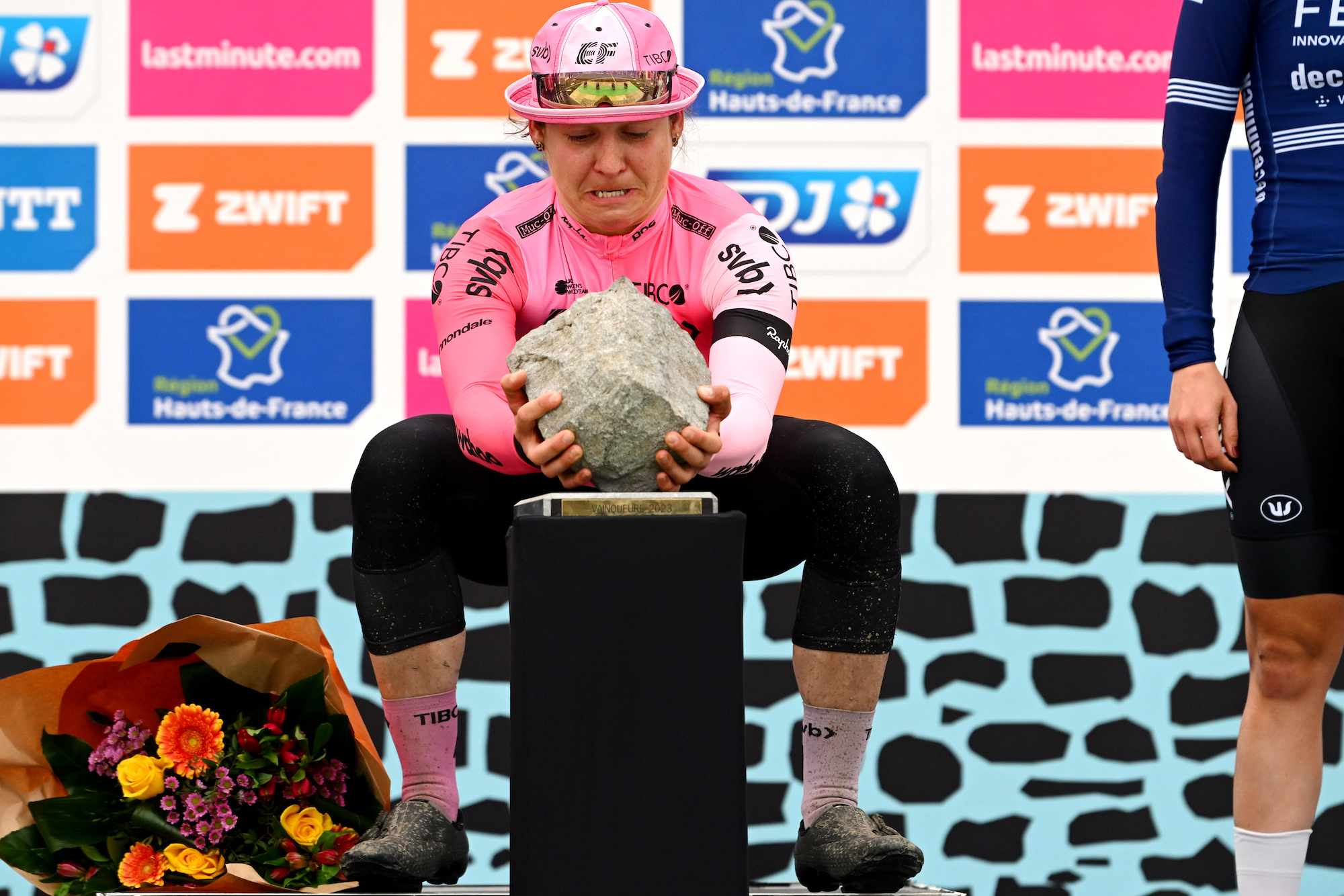
When Alison Jackson and her breakaway companions turned into the Roubaix velodrome, they were met with a wall of noise.
It was a roar of encouragement, but also surprise. For the best part of three hours, the breakaway had been engaged in a suspenseful will they, won’t they at Paris-Roubaix, growing a six-minute gap, before seeing it reduced to seconds before the finale.
It was only when they swung into the velodrome, that the crowds knew they’d do it.
There, on the exit of the final bend, Jackson picked her moment, springing out of the pack, and riding alone across the line. She raised her arms in disbelief.
For the Canadian, the moment was a “dream come true".
“I always say I love bike racing. I love the chaos, I think it’s so fun. But there’s a special type of fun when you win,” the 34-year-old told Cycling Weekly and other outlets in a press conference. “As a Canadian, to win this race is pretty monumental for cycling in Canada. For me, [it’s] my biggest win of my career. Yeah, a dream come true.”
It wasn’t until she was 26 years old, in 2015, that Jackson first joined the pro ranks. She’s a former national champion, both on the road and against the clock, but before this weekend, had only tasted WorldTour success at the Simac Ladies Tour, where she won a stage two years ago.
The road to Roubaix had been fraught with setbacks. In March, a crash at the Ronde van Drenthe left the EF Education-TIBCO-SVB rider with a hole in her knee, one so deep it required four stitches to fix. “That’s why I wear knee warmers when I’m racing,” she explained. “Just to have a patch on, I’ve got to keep it clean. It’s not totally healed yet, but yeah, bike racers have to be tough, and crashing is a part of it.
“Once you’re in the race, you just forget about it and go. You got to use what you got.”
What Jackson had, in the end, was a turn of pace that her five companions couldn’t match. Standing on the podium under a blanket of clouds, she grinned as her proud team-mates cheered her, sat in a line against the barriers. Jackson lifted her trophy - a bulky cobble - and pulled it into her chest.
She patted it proudly during the press conference. “I grew up on a farm in rural Alberta, and one of the things I had to do as a kid was go into the field and pick rocks by hand,” she said. “Lo and behold, me, and I’m picking another rock, and I’m taking it home.”







